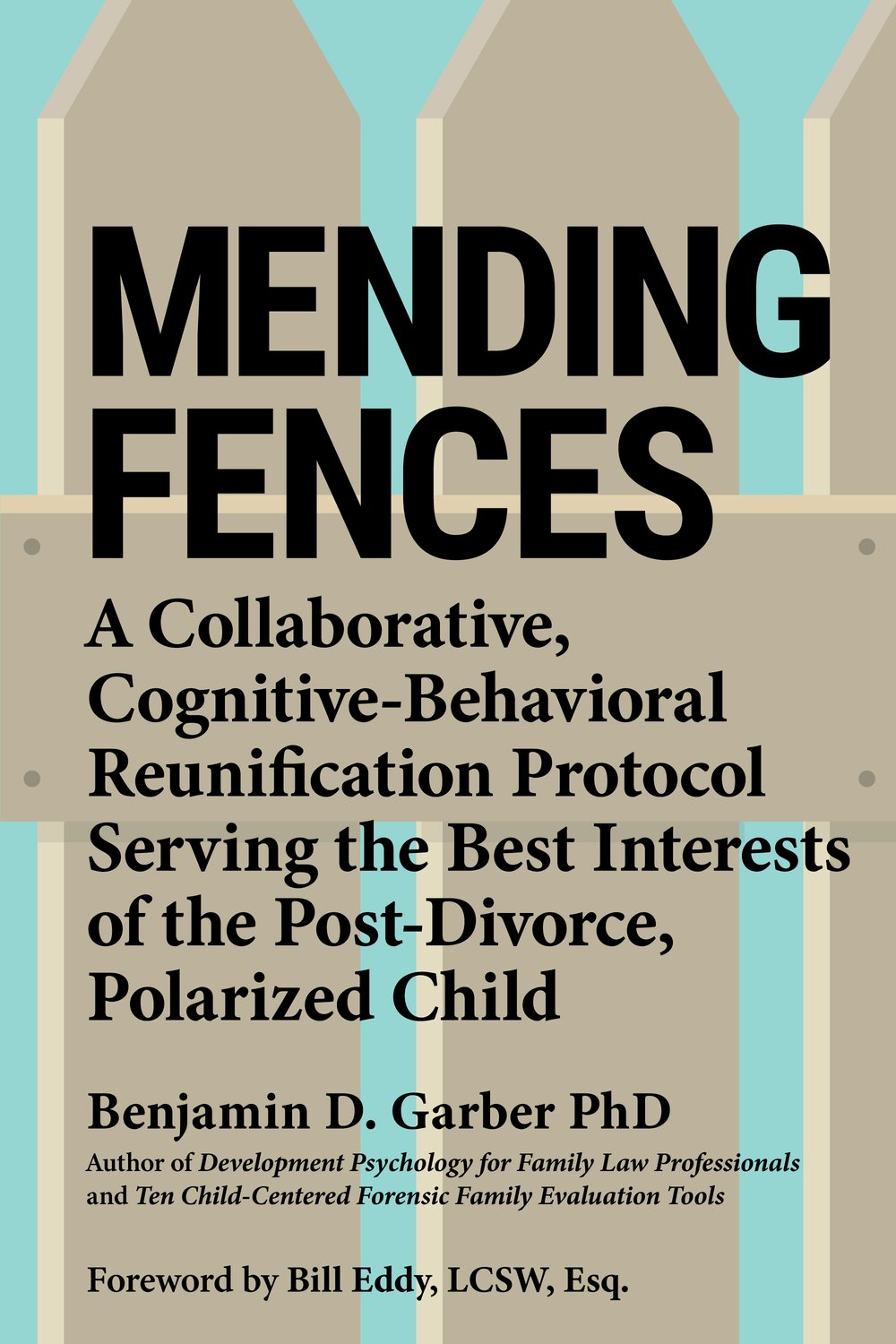Mending Fences
A collaborative, cognitive-behavioral reunification protocol serving the best interests of the post-divorce, polarized child

High conflict divorce can leave children polarized within the transitioning family system, aligned with one parent and resisting or refusing contact with the other parent. Rather than becoming mired in the bottomless pit of back and forth blame, more and more courts are seeking remedies in the form of reunification therapy.
Charged with helping the polarized child to enjoy a healthy relationship with both parents, we know what doesn’t work: individual child therapy cannot remedy a family systems problem. Dyadic interventions with the child and either parent are seldom sufficient. Even family therapies fall short when they are not grounded in well-established, reliable and valid science.
Mending Fences introduces a child-centered, systemically informed, empirically-validated and experientially-proven collaborative reunification protocol. Focusing on the anxiety inhibiting the system’s healthy functioning, well-respected and long-validated cognitive behavioral exposure methods are fused with structural family therapy to reduce the child’s anxieties about separating from one parent and approaching the other, the aligned parent’s fears of separation and loss, and the rejected parent’s fears of rejection.
A common vocabulary across coordinated interventions allows children across the spectrum of ages and abilities to identify and overcome an individually tailored succession of anxiety-inducing events so as to gradually (re-)establish healthy and safe relationships with both parents.
The Mending Fences protocol is practical, proven, and effective. The user-friendly discussion is peppered with up-to-date references to the scientific literature and international case law. Application via video conferencing platforms is discussed.
Included: Case illustrations, sample court orders and service agreements
Table of Contents
Caveat Lector
Foreword
Chapter 1 There Is No Such Thing as Reunification Therapy
Chapter 2 Know When to Hold ‘Em: Receiving, Accepting, or Declining the Referral
Chapter 3 The Court Order
Chapter 4 The Service Agreement
Chapter 5 In the Age of Telehealth
Chapter 6 On Villages and Blind Wisemen: MMST as a Team Sport
Chapter 7 Initial Adult Interviews
Chapter 8 Establishing Rapport with the Child
Chapter 9 Conducting Initial Child Interviews; Segueing into Anxiety Management
Chapter 10 Understanding Anxiety
Chapter 11 Anxiety Management, Exposure, and the MMST Protocol
Chapter 12 Working through the Success Deck: Creative, Responsive, and Graduated Exposure
Chapter 13 When MMST Isn’t Enough
Appendix A Sample Court Order
Appendix B Sample Service Agreement
Appendix C Sample Timeline of Multi-Modal
Systemic Reunification Therapy
Citations
Acknowledgments
Index

Benjamin D. Garber, Ph.D. is a New Hampshire licensed psychologist, parenting coordinator, former guardian ad litem, and expert consultant to family law matters across the United States and Canada. Dr. Garber is a prolific writer and acclaimed speaker. He is the author of eight books concerned with better understanding and serving the needs of children, more than two dozen juried professional publications concerned with high conflict family dynamics, and hundreds of popular press articles.
Across roles, Dr. Garber is first and foremost a children's advocate. As a clinician, as a consulting expert, as a writer and as a speaker, Dr. Garber's goal is to help parents, professionals, courts, and organizations to better understand child development and family dynamics so as to put children's needs first. Dr. Garber's child-centered approach is particularly important in his work as a family law consultant. Whether working for counsel or the court, Dr. Garber retains the right to speak out in the best interests of the child.
Dr. Garber has lived and worked in New Hampshire since 1987. He is active in the greater Nashua community, has consulted to the state government, and has been instrumental in the development of child-focused agencies and legislation. He is active in national and international family law organizations. He has published his Healthy Parent column for the Nashua Sunday Telegraph twice monthly for more than twenty years. He is a son, a husband, a proud father, and a grandfather. Outside of work, he is an avid kayaker, fisherman, and woodsman.

